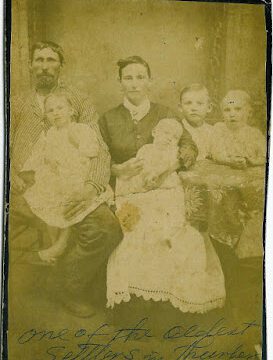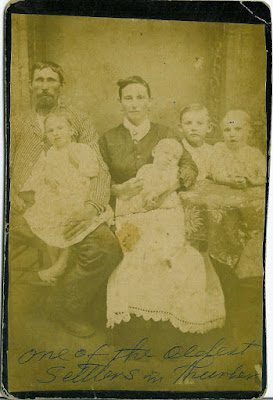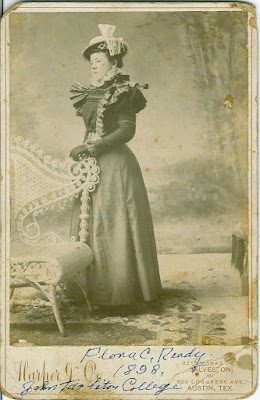A Stay-At-Home Life

A Stay-at-Home Life
by Kyndall Howard
This current spring has brought many changes to the world. More and more citizens find themselves regulated to working from home. This has inspired a look back to the 1900s, during the height of company towns, to what “working from home” meant for the many a woman in Thurber, TX. For the majority of women in a mining town, work revolved around maintaining the home and keeping order. Though unpaid, a woman’s labor allowed the miner to concentrate on his job without the added stress of cooking or cleaning for himself, to say nothing of watching the children. Many of these tasks were completed without many of the conveniences society enjoys today. Women shopped for needed groceries to feed their entire family, including additional members or boarders staying in their home. Prices at the company store often created stress and creativity for women to overcome. The women would often provide meals for the men outside of work, to take with them on the job. In those days, mealtime was a long process of preparing the meal to cook, from scratch, and often on a wood burning stove or an outdoor Italian oven. Many women maintained a garden to help keep the household in vegetables, and they would later can and preserve the produce for use during the colder months.

Unpaid, working women were also tasked with keeping the house clean and tidy. They would air out the house, scrubbing and washing the home from top to bottom. All dishes used for cooking and eating would be hand washed daily. They would likewise gather laundry to keep their families in clean clothes and linens. Once again, this process of laundry meant that women would labor over washtubs, and use their own strength for scrubbing dirt and grime form the garments. Once washing was completed, they would hang the wash on a line outside for the sun and wind to dry. Some women ran boarding homes in company towns that would provide them with income and tenants a room and board. The tasks of running such a business consisted of the same duties they employed within their own home, with the added benefit of income to help provide and maintain stability for their family. This allowed for women to run a business while working from home.

Aside from duties of home maintenance, many women would create items to be sold to fellow members of their community. Many of the items the household used or needed were handmade. Women would make extra items to be sold or traded for other items that they could not make or did not have the talent to make. Through this women were able to do more things at home that would allow for extra income or the ability to obtain other items needed for the home at lower cost than through purchase from a store. Life in a company town was filled with hardships and the redundancy of everyday tasks that were integral for efficient and effective organization of the home. Everyone had different duties that required attention and proficiency to get the tasks done. While many in our society today are currently facing the issue of redundancy at home, we can harken back to the days of a company town, and how there are many tasks, within our own four walls today, that can fill our days with the satisfaction of a job well done.





